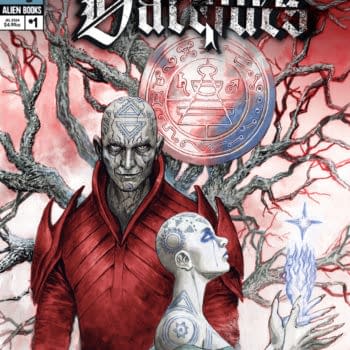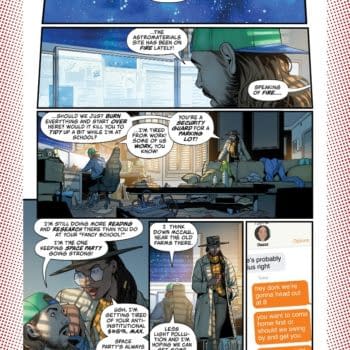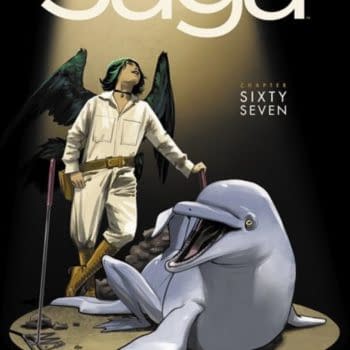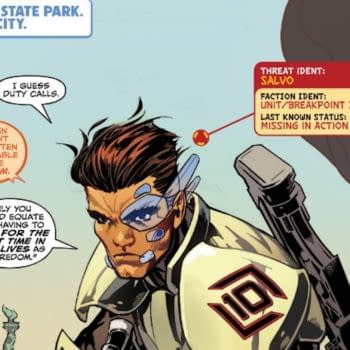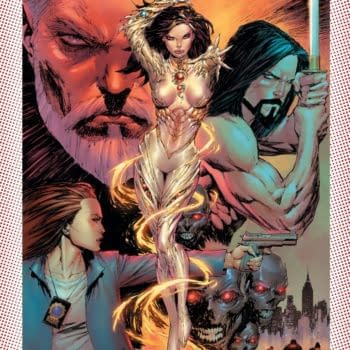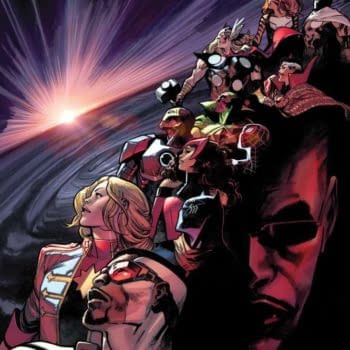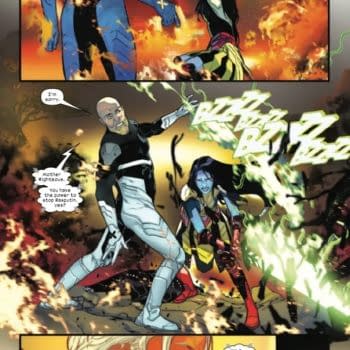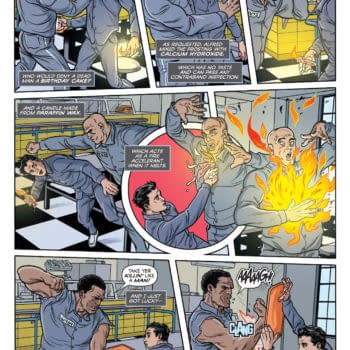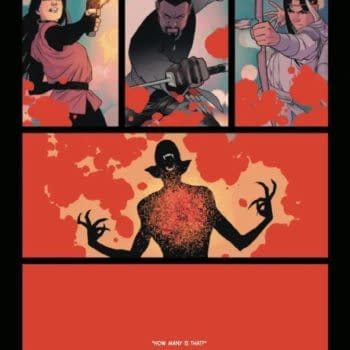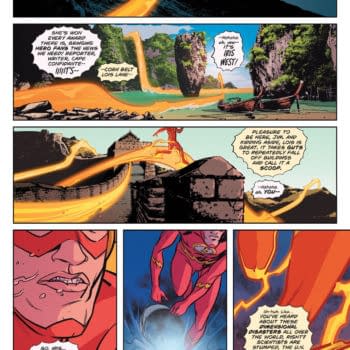Posted in: Comics | Tagged: comic con, inkpot, mike carey, san diego, sdcc
My Faith In Frankie – The TV Series? The Mike Carey Spotlight Panel
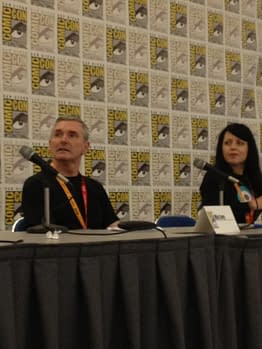
The Spotlight on Mike Carey panel began with the writer receiving (to his obvious surprise and delight) an Inkpot Award. Then it was time for Shelly Bond to walk the audience through the career of Mike Carey as he shared his feelings, thoughts and memories. The two have known each other for quite awhile and it shows. Bond has this connection with her writers that becomes evident whenever she shares stage time with them. She grins wildly with pride as the people she respects receive the respect they deserve.
Carey began writing reviewing comics such as Stray Toasters and Sandman as well as penning articles about Doom Patrol for UK mag, Fantasy Advertiser. It was Martin Skidmore as editor who would give Carey his first break in the comics field. He then worked for a short lived British anthology called Toxic!, a would-be rival to 2000 AD, Carey wrote a strip called Aquarius which he described as "an embarassing ripoff of Watchmen, which [he'd] only just read. It's kind of fortunate that nobody read it." And before he wrote about Lucifer he wrote about the rock and roll Prince of Darkness, a comic biography of Ozzy Osbourne for Malibu. He wrote for Caliber, where he worked for "almost literally nothing" yet learned valuable lessons and gained experience he considers invaluable.
After trying to land gig after gig at Vertigo, he was finally handed Lucifer and told to come up with a pitch in three days and a script in ten, provided the pitch was successful. The editor who brought him in on Sandman Presents Petrefax, left on maternity leave, handing him off to Bond who admitted to not being thrilled at being handed someone else's project and took it out on Carey the first time she met him, on his first trip to San Diego. "I've got twenty minutes, you can either have a hot dog or a coffe." was Bond's greeting, before a pitch meeting where everything Carey brought up Shelly hated. But it was reading Carey's script for a piece in Flinch that changed her mind.
Despite Shelly's request at the time that no one should pitch her anything to do with heaven or hell, considering it overdone, she was still handed Lucifer. Chris Weston and James Hutchins "did not get on at all" Carey told us on his early days with the title, explaining the difficult birth of the long-running series. But Peter Gross' arrival marked the beginning of a long running, creatively and commercially successful relationship between the two.
Carey at first turned down the opportunity to write Hellblazer thinking that it would be too difficult to handle two monthly books (admitting he would later go on to do four or five at a time), yet only needed a day to think it over before calling back and accepting. Despite his acclaimed work for DC, Carey says the longest running stint he had on any book was X-Men believing it to surpass Lucifer by a handful of books. Carey also continued to produce Sandman related work through titles such as The Furies and God Save The Queen.
Bond was particularly proud of the work Carey did for the (now dead) DC imprint Minx, titles such as Re-Gifters and Confessions of a Blabbermouth. My Faith in Frankie would've fit, but predated the Minx line and was published under the Vertigo banner. My Faith in Frankie, it was announced is in talks to be turned into a television series. It's one of the stories Carey is most proud of.
The Steel Seraglio is a book Carey wrote with his wife and daughter, for a small Canadian publishing company. The book is inspired by the arabian nights, but the Careys reimagine the tale without the uncomfortable misogyny. This year also saw Carey published in the Charlaine Harris horror anthology, An Apple For The Creature.
Finally I was able to ask Carey why he left X-Men. His answer was far less dramatic than the situations I had created in my head to explain what felt like an abrupt departure almost mid-story.
"It was without qualms, I loved writing that book, I had a great time on it, a lot of stuff was going on in my life that didn't have to do with comics, there was a problem I've encountered since I started writing novels, comics work on very short deadlines, you do a script in a month, your doing rewrites constantly, your doing breakdowns for the next issue constantly, if you're writing a novel at the same time, you have to constantly put the novel on the back burner to do your comics work, and then you kind of lose the day or a part of the day getting back up to speed on the novel every time you do that, so I consciously cut back on comics work in order to get a couple of novels out the door, to write a movie screenplay, to do some development on some other stuff…something had to give and it was a toss up between X-men and Unwritten and it turned out to be X-men. I would go back like a shot, if they wanted me back at some point, specifically to write the sequel to Age of X. It was so much fun to write."






